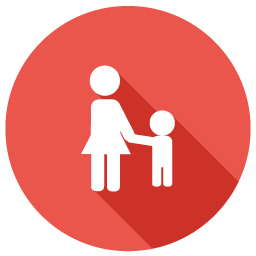Imagine walking into a clothing store and the first thing you see is a rack of jeans clearly labeled “€49.99”. With this price in mind, you start looking at the different jeans. As you scavenge those denims, you might find something you like.
Now let's look at a different scenario: imagine walking past a display where you see a pair of jeans. When you walk over to take a closer look, you see that it says “€49.99” on the tag. Will you go in and look for the pair of jeans?
In both cases, the denims and importantly, the price are the same (e.g., you have the same kind of information). However, depending on which one you see first, will you make the same kind of decision?
Posted in Archive, Conversion
published on Tuesday, 26 April 2016
Web shops are awesome. You have a 24hr delivery, you can read someone else’s review about their experience, and it’s super easy to compare prices between stores.
What’s less awesome about shopping online, is the fact that you can’t hold the product. You have to trust the reviews and wish for the best. And that’s where a lot of web shops can book a lot of progress. You need to make sure that product pages are displaying the product so eloquently that it feels like you’re practically holding the product. Then you’ll be able to remove the barriers from buying online, as opposed to offline.
Posted in Archive, Conversion
published on Monday, 18 April 2016
Observing others’ emotional conflict and agony over an impending decision makes our preferences converge to those of the conflicted actor. We choose more similarly, based on our empathy and shared feelings for the other we observe. This has implications for both consumer behavior in a marketing environment and group decision making.
Posted in Archive, Conversion
published on Monday, 11 April 2016
Imagine you’re spending the night in your nearby cinema, viewing Hollywood latest blockbuster. What determines how much you’ll enjoy the movie?
You might think about factors such the film’s beautiful cinematography, the popcorn’s crisp bite or even the usherette’s cute smile. Surprisingly, brain scientists from Princeton University have now unearthed a much more subtle influence on our experience of pleasure: the freedom of choice you had prior to attending the movie. The pleasure generated from choosing between options – let’s say a romantic comedy and a sci-fi epic – spills over to the subsequent experience. This is called the Choice Premium Effect.
Posted in Archive, Conversion
published on Monday, 07 March 2016
People love routines. Of course, we like to think that we all make well-considered choices. But as a matter of fact, most of the time we are slaves to our own habits. This makes psychological sense, because why spend your precious time deliberating on your options and getting distracted by unnecessary details, if you can also apply a working recipe and go straight for the best result?
Posted in Archive, Conversion
published on Tuesday, 01 March 2016


